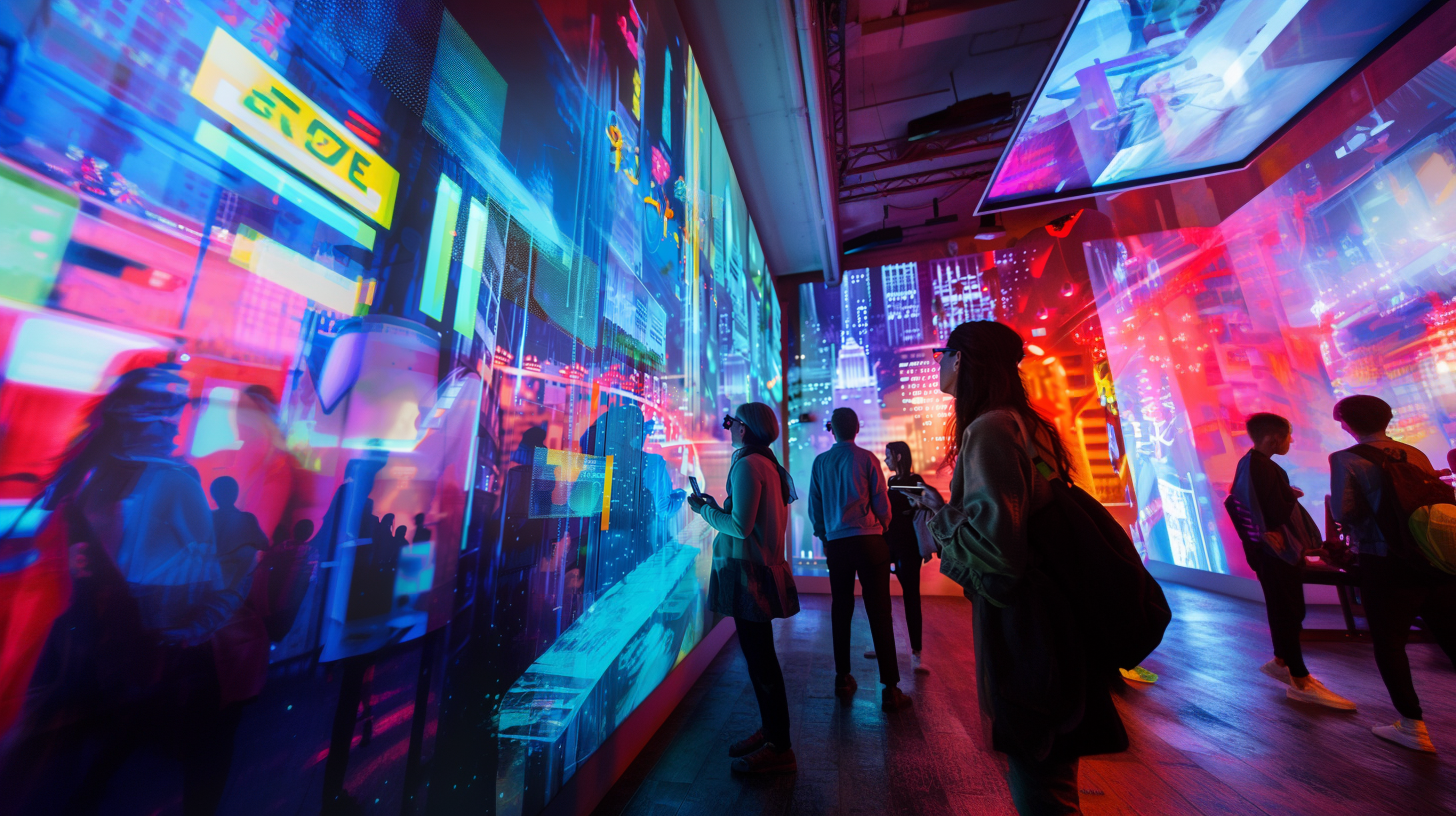The Evolution of Event Planning
As we move towards 2025, immersive experiences are revolutionising event planning. Leveraging technologies such as virtual reality (VR), augmented reality (AR), and mixed reality (MR), event planners can create environments that captivate and engage attendees on multiple sensory levels. These innovations provide a unique opportunity to blend the physical and digital worlds, creating memorable and interactive experiences.
Virtual Reality in Events
Virtual reality is at the forefront of immersive event experiences. It allows participants to be transported to entirely different worlds without leaving their homes. For instance, a corporate event can include a virtual tour of a new product line, allowing attendees to interact with the product in a simulated environment. This level of engagement enhances understanding and retention, making VR an invaluable tool in event planning.
Augmented Reality Enhancements
Augmented reality, which overlays digital information onto the real world, offers another layer of interactivity. Imagine walking through a conference hall where digital displays provide information about each exhibitor or attending a music festival where AR apps enhance the visual experience. These applications not only engage but also provide practical information that can enhance the attendee experience.
Hybrid Events: Combining the Best of Both Worlds
Hybrid events, which blend in-person and virtual elements, are becoming the norm. This model offers the flexibility to reach a broader audience, accommodating those who prefer to attend in person and those who opt for virtual participation. Hybrid events are not just a stopgap solution but a strategic approach that offers numerous benefits.
Benefits of Hybrid Events
One of the primary benefits of hybrid events is increased accessibility. Individuals who might not be able to travel to the event location can still participate virtually. This inclusivity ensures a wider reach and higher engagement. Additionally, hybrid events offer valuable data insights. By tracking both in-person and virtual attendee behaviours, event planners can gain a comprehensive understanding of their audience and tailor future events accordingly.
Best Practices for Planning Hybrid Events
Seamless Integration of Platforms: The digital platform used for the virtual component must be robust and user-friendly. Ensuring a seamless transition between in-person and virtual experiences is crucial to maintaining engagement.
Engaging Content: Content must be designed to engage both physical and virtual attendees. Interactive elements such as live polls, Q&A sessions, and chat functions can keep the virtual audience engaged. For physical attendees, integrating AR experiences or live demonstrations can add a layer of interactivity.
Immersive Gifting: Providing attendees with immersive gifts such as VR headsets or custom AR filters can enhance their experience and make the event more memorable. This approach can create a multi-sensory experience that aligns with the event’s theme and objectives.
Leveraging Data and Analytics
One of the significant advantages of hybrid events is the ability to collect and analyse data from both in-person and virtual attendees. This data provides valuable insights into attendee behaviour, preferences, and engagement levels, which can be used to improve future events. Advanced analytics can also help measure the event’s impact and return on investment (ROI) more accurately.
Sustainability in Event Planning
Sustainability is becoming a critical consideration in event planning. Hybrid events, by reducing the need for travel and physical materials, inherently support more sustainable practices. Additionally, the use of digital tickets, virtual swag bags, and online promotional materials can significantly reduce the environmental footprint of events.
The Future of Immersive and Hybrid Events
Looking ahead, the future of event planning lies in the continued integration of immersive and hybrid models. As technology advances, the possibilities for creating more engaging, inclusive, and sustainable events expand. Event planners will need to stay abreast of these trends and continuously innovate to meet the evolving expectations of their audiences.
By 2025, we can expect immersive and hybrid events to become the norm rather than the exception. These models not only offer practical benefits such as increased reach and flexibility but also open new avenues for creativity and engagement. As we navigate this exciting future, the key will be to balance technological innovation with the timeless principles of effective event planning: understanding the audience, delivering valuable content, and creating memorable experiences.



